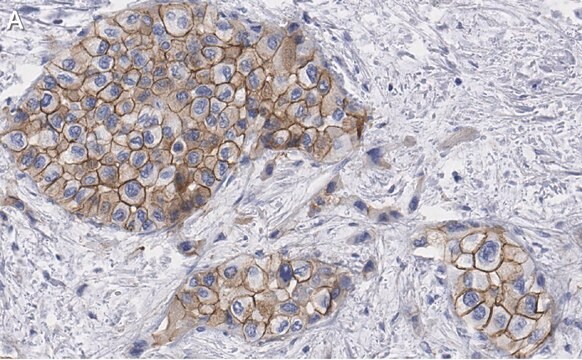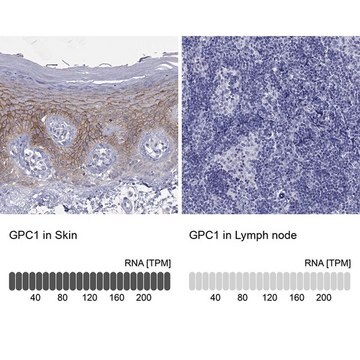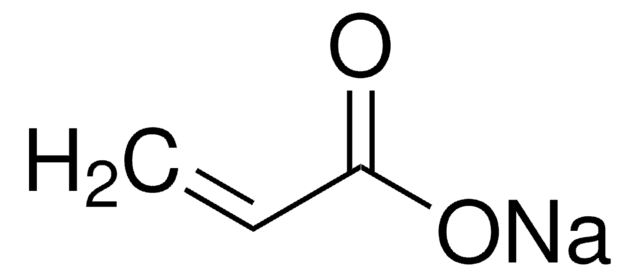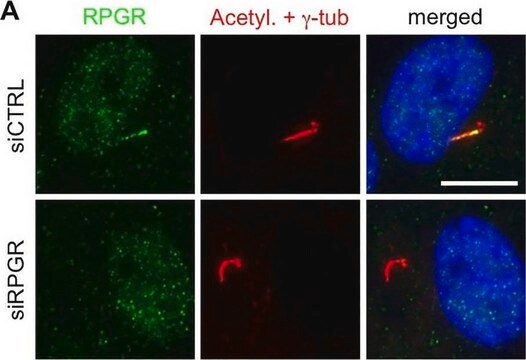MAB2600
Anti-Glypican-1 Antibody, clone 4D1
clone 4D1, from mouse
Synonyme(s) :
glypican 1, glypican proteoglycan 1
About This Item
Produits recommandés
Source biologique
mouse
Niveau de qualité
Forme d'anticorps
purified antibody
Type de produit anticorps
primary antibodies
Clone
4D1, monoclonal
Espèces réactives
human, rat
Technique(s)
immunohistochemistry: suitable (paraffin)
western blot: suitable
Isotype
IgG1κ
Numéro d'accès NCBI
Numéro d'accès UniProt
Conditions d'expédition
wet ice
Modification post-traductionnelle de la cible
unmodified
Informations sur le gène
human ... GPC1(2817)
rat ... Gpc1(58920)
Description générale
cell-associated forms, including syndecans, glypicans, and secreted extracellular matrix forms, such as perlecan. Glypicans contain six family members to date and are proteins bound to the outer surface of the plasma membrane by a glycosyl-phosphatidylinositol anchor and involved in cellular adhesion and migration and function as accessory molecules for signaling receptors, (Filmus, 2008 & Gui, 2006). Current publications indicate the main function of membrane-attached glypicans is to regulate the signaling of Wnts, Hedgehogs, fibroblast growth factors and bone morphogenetic proteins (BMPs), (Filmus, 2008).
Glypican-1 (GPC1) is over-expressed in human gliomas and appears to have a greater capability of promoting FGF-2 signaling in some gliomas versus HSPGs in normal astrocytes. Additional observations suggest that GPC1 can impact the growth of pancreatic cancer cells by attenuating tumor angiogenesis, (Whipple, 2008).
Spécificité
Immunogène
Application
A 1:50 dilution of a previous lot detected strong cytoplasmic staining of tumor cells in formalin-fixed, paraffin-embedded gangliobastoma tissue sample. There was negative staining of normal, uninvolved cells.
Cell Structure
ECM Proteins
Qualité
Description de la cible
Forme physique
Stockage et stabilité
Remarque sur l'analyse
PC-12 cell lysate.
Autres remarques
Clause de non-responsabilité
Vous ne trouvez pas le bon produit ?
Essayez notre Outil de sélection de produits.
Code de la classe de stockage
12 - Non Combustible Liquids
Classe de danger pour l'eau (WGK)
WGK 1
Point d'éclair (°F)
Not applicable
Point d'éclair (°C)
Not applicable
Certificats d'analyse (COA)
Recherchez un Certificats d'analyse (COA) en saisissant le numéro de lot du produit. Les numéros de lot figurent sur l'étiquette du produit après les mots "Lot" ou "Batch".
Déjà en possession de ce produit ?
Retrouvez la documentation relative aux produits que vous avez récemment achetés dans la Bibliothèque de documents.
Notre équipe de scientifiques dispose d'une expérience dans tous les secteurs de la recherche, notamment en sciences de la vie, science des matériaux, synthèse chimique, chromatographie, analyse et dans de nombreux autres domaines..
Contacter notre Service technique








